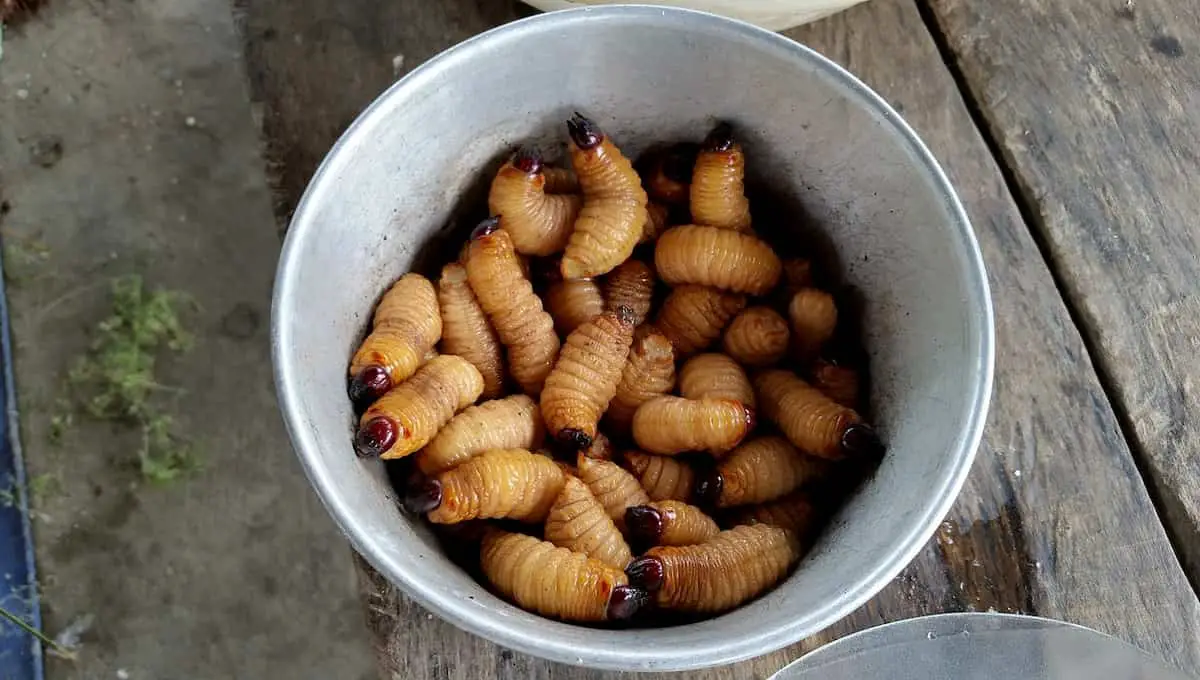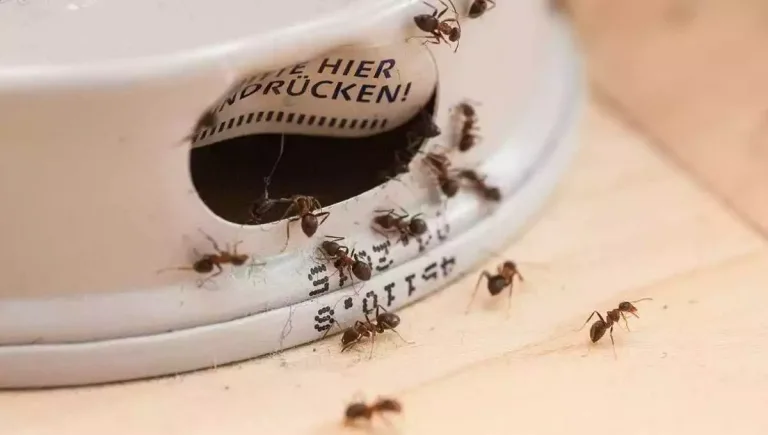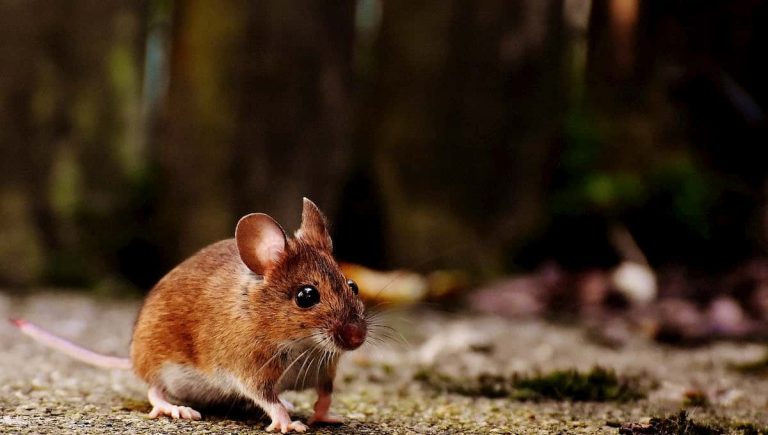Killing Maggots With Vinegar in 5 Easy Steps

Coming home to find a pile of maggots in your house or garbage cans is just plain disgusting. This happens most frequently in the hot summer months as humidity creates the perfect conditions for them to thrive. To deal with this problem, many people have resorted to using vinegar based solutions to kill maggots. How does killing maggots with vinegar actually work, and is it effective?
To kill maggots with vinegar, mix roughly 3 parts water to 1 part vinegar in a bowl. Pour the vinegar mixture on the maggot infestation and wait for them to die out. Clean the area then repeat the process daily until flies are no longer present.
The presence of maggots is a sign that food is left for too long or rotting garbage is not covered properly. Fortunately, there are tips to manage them using vinegar.
We’re going to show you the 5 step process for killing maggots with vinegar, as well as more tips on how to use vinegar to kill maggots and prevent future infestations.
Can You Kill Maggots With Vinegar?
Maggots exist because somewhere, a fly laid thousands of eggs. These tiny, oval-shaped wriggly larvae start out as eggs deposited in rotting food like fruits in the garbage or food on the table left for too long.
Flies lay their eggs strategically on food sources so that the larvae have decomposing matter to eat and continue to be well-fed once they hatch.
While it’s not a good thing to have maggot infestations, you should know that it’s not uncommon. Flies have a short life cycle, which is spent mostly on breeding. Getting rid of their maggots is important since they can contaminate food products and raise the risk of food poisoning.
For the homeowner, a pile of maggots is unsanitary and disgusting to look at. Immediately you would want to get rid of them the moment you see them. The good thing is that the bottle of vinegar in your kitchen cabinet can effectively kill maggots.
In another blog post, we also show how you can kill maggots with bleach, so be sure to check that out!
How Long Does It Take Vinegar To Kill Maggots?
Vinegar, including the popular apple cider vinegar, is a diluted form of acetic acid, which classifies it as a weak acid. And as such, it has been used for several purposes including pesticide and fungicide.
More commonly, you might hear of people using vinegar to kill mushrooms and other unsightly nuisances in the yard.
If you plan to use vinegar to deal with maggots in your area, you might be wondering, does vinegar kill maggots instantly? It’s worth noting that vinegar does not kill maggots instantly.
Usually, it takes about 8 hours for maggots to die once the vinegar is applied. Still, vinegar can be a helpful method of getting rid of maggots on your property, when used the right way.
What Type Of Vinegar Should I Use To Kill Maggots?
You might be wondering what type of vinegar kills maggots. Should it be a special type of vinegar, or is it acceptable to use vinegar that you can find in your home?
To get rid of maggots, some homeowners use the kitchen favorite apple cider vinegar, while others swear by white vinegar. Let’s explore these two types of vinegar.
Does Apple Cider Vinegar Kill Maggots?
Apple cider vinegar contains 5% to 6% acetic acid in 95% to 94% water. It is made from crushing apples and fermenting it. It is popularly used for salad dressings or as marinade – in short, it’s a versatile kitchen ingredient.
When it comes to use as a pesticide, a solution of 1/6 apple cider vinegar and 5/6 water is said to work against maggots. However, it may not act as fast as other remedies, killing maggots for as long as 18 hours.
Does White Vinegar Kill Maggots?
A much better approach would be to use white vinegar, which has 6% to 7% acetic acid. This makes it a stronger solution with more acid content compared to apple cider vinegar. It has an intensely sour taste perfect for pickling vegetables.
When it comes to maggot infestations, especially in your trash can, you can try pouring a solution consisting of one part white vinegar mixed with three parts boiling water.
An added bonus is that white vinegar is also said to have antimicrobial properties and can be used to disinfect your kitchen counters.
While there may not be any conclusive studies on white vinegar’s efficacy as a disinfecting agent, there have been studies conducted showing it is capable of reducing bacteria on the surface.
White Vinegar or Apple Cider Vinegar?
You may use either type of vinegar in killing maggots. The choice all boils down to the availability of the vinegar and the way you use it.
For instance, white vinegar is usually mixed with boiling water to be poured on maggots. This should kill the larvae and eliminate odors that will attract flies.
But in order for the vinegar to be effective as a pesticide, you may need to reapply once a week until flies no longer come back to lay eggs.
Killing Maggots With Vinegar Step By Step
Here’s a rundown of how you can kill maggots using vinegar:
- Prepare a solution containing vinegar and water in a bowl.
- Stir well to properly mix the two liquids.
- Locate the area where there are maggots and start flooding them with the solution.
- Once maggots are dead, clean the area with any disinfecting solution (Clorox, for instance). If you had the maggots in your trash bin, make sure to wash it once it’s been emptied out.
- Repeat the process if necessary. Usually, you may need to repeat this procedure once a week until flies are no longer present.
Another alternative to this is to mix your vinegar with boiling water and pour it on to the infested area.
Tips to Prevent Future Maggot Infestations
Let’s face it – maggots won’t be there in the first place if an area is kept clean. If there are no flies, there will be no maggots. This is why cleaning your surroundings is important to make sure you don’t attract flies.
But it’s a different story in your garbage bin, where there’s plenty of food for flies and their maggots. Keep in mind that maggots stay as the squirmy crawlies that they are between 15 to 30 days. Make sure you don’t leave them alone and kill them on sight before they have the chance to become flies.
Invest In High-Quality Trash Can
It’s also good to invest in a better trash bin, one that doesn’t hold odor too much. One example is Glad Plastic Step Trash, which has an odor control lid. If you have to, upgrade old trash containers asap.
If you have to go for plastic trash containers, go for one that has smoother interiors. That way, the fly-attracting juices just slides off to the bottom.
Limit How Long Meat Scraps Stay Inside Your Garbage Cans
Meat scraps are very attractive to female flies and they can easily become breeding grounds. Female flies are able to smell the odor and will easily flock to it to lay eggs.
If you have to throw away meat scraps, do it when the garbage collector is about to visit. Take note of the garbage collection schedule. This way, you will limit the stay of meat scraps in your trash can.
If you already have meat scraps collected several days before the garbage collector comes, you can simply put them in a heavy-duty zip lock bag and freeze it.
Don’t Discard Bones And Fat
Throwing away the bones and fat from meat is something that everyone does. Unfortunately doing this can be an invitation for flies to throw a party in your garbage can. One great way to prevent this is to save these trimmings to make sauces, gravies and broths.
Bag It
When throwing out food scraps, make sure to place them in a properly sealed bag. This should keep flies away, especially if the trash has to stay outside for a couple of days before the garbage collector comes.
Clean Your Trash Can
Once a week, clean your trash using a strong disinfectant. A vinegar solution can also be used in this case. Scrub the inside and outside with a damp cloth and then with a dry cloth, wipe it down. Once finished with washing, put it out under the sun before putting in your plastic bag.
Keeping up with your trash can cleaning can greatly help in preventing flies from visiting and laying eggs.
Conclusion
Cleaning out maggots is not a fun thing to do, but it is necessary. The good thing is that you don’t have to search high and low for any disinfectant. If you want a more natural approach, killing maggots with vinegar will do the trick.
Whether you use apple cider vinegar or white vinegar, it doesn’t really matter too much because both are weak acids capable of killing maggots. But what’s more important than the type of vinegar to use, is the way you use the ingredient.
You can either flood the maggots with the vinegar-water solution or use the vinegar along with boiling water.
For a more effective maggot infestation control, keep in mind that keeping a clean surrounding greatly helps. Clean your trash can once a week and make sure to keep flies away from a possible food source.






